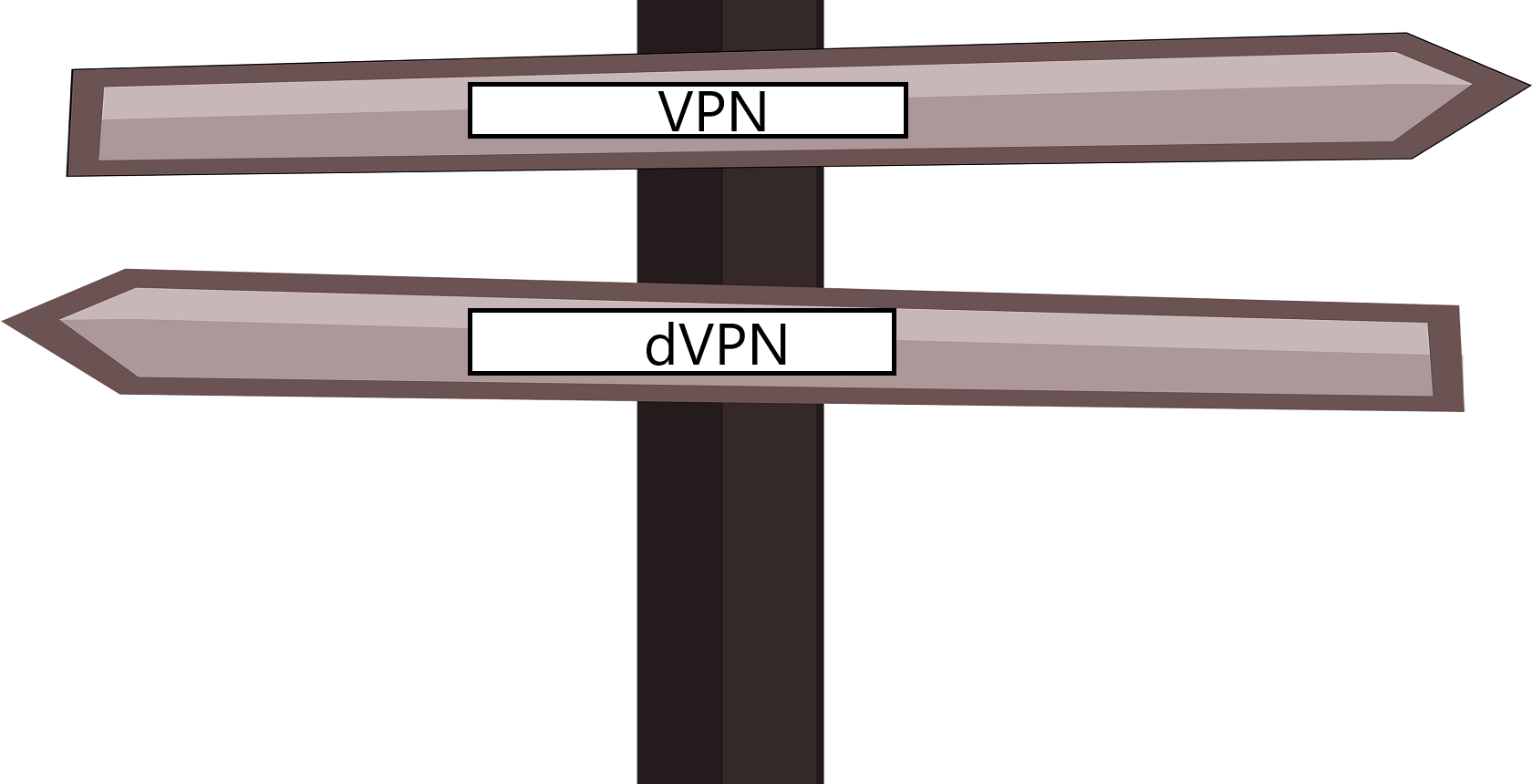A decentralized VPN offers better connection security and could change the way we browse the internet.
Commonly known as dVPN, a decentralized VPN offers a secure internet connection that is run by a network of nodes that can be a server, a laptop, phone, or even a desktop computer. These nodes receive compensation for maintaining their services and providing a safer network.
But does a dVPN secure your connections more efficiently than a regular VPN? Is a dVPN based off on the popular blockchain technology? And what are the best choices available on the market?
Is dVPN More Secure Than a Regular VPN?
A regular VPN has a central provider managing the rerouting of internet traffic. While most VPN providers claim to not log your data, there is no way to be sure that they are not selling your info to third parties.
A standard VPN is also closed source so there's no way to ensure the VPN is actually encrypting your traffic or whether or not the provider has a backdoor and could be sniffing on traffic. For this reason, regular VPNs are more prone to getting hacked and their logs can get tracked.
Whereas, a dVPN runs on a barter system where you allocate a part of your bandwidth to other users on the network and receive other available IP addresses to use in return.
You can even get compensated in some form of cryptocurrency for allowing others to use your resources, and Ethereum and BAT (Basic Attention Tokens, a type of Ethereum tokens) are offered to you for your contribution.

The most secure aspect of a dVPN is its centralized nature that prevents any type of logging as all data is distributed between various nodes. Since there is no single node responsible for fully processing your requests, what you browse or who you are cannot be discovered.
Also, a dVPN is open-source which means that anyone can open the source code and explore it. With a little bit of technical know-how, anyone can check for suspicious elements and log reports to the developer if they find any bugs.
The Verdict: Can You Trust dVPNs?
If you compare the security aspects of both types of VPNs, the dVPN emerges as the clear winner in terms of offering better connection security, privacy, and anonymity.
Blockchain Technology and the dVPN

To understand how safe a dVPN is, it is important to understand the blockchain technology on which it is based. A blockchain is a series of blocks that record data in hash functions with timestamps so that the data cannot be changed or tampered with. The data is secured by eliminating centralized points which are often the target of cyberattacks.
In fact, blockchain can store any type of data in publicly available databases, and therefore a blockchain-based VPN or dVPN does not rely on a single central server. Each PC or system acts as a node, which makes it virtually impossible to hack this type of infrastructure.
In order for a cybercriminal to hack a particular dVPN, they would need to hack the entire network of PCs involved, which makes it a lot more cumbersome.
Which dVPN Is Best for You?
The dVPN market is still in its infancy but is rapidly gaining momentum. While there's not a long list of competitors, a few companies have stood out with strong dvPN solutions.
Mysterium Network
A peer-to-peer decentralized VPN provider, Mysterium Network allows users to run their nodes to maintain its VPN network. Users can also sell their unused network traffic on the marketplace which other users can purchase to access the internet more safely and privately.
At the time of writing, there are about 1800+ nodes running the network from more than 80 countries. Subscribing to a node is as easy as selecting a node that you want to connect to and simply start browsing.
The Mysterium platform also offers a unique payment system known as micropayments, allowing users to pay as they go. Essentially, users pay per gigabyte of usage which saves them from hefty subscription costs.
Orchid
Released in December 2019, Orchid Labs runs its own cryptocurrency named OXT.
It's the first cryptocurrency-based VPN that uses WebRTC as its connection and encryption standard. This is the best choice for anyone who really knows their cryptocurrencies, and offers more anonymity than most VPN services on the market.
Orchid also offers multiple provider networks and unlimited devices are available for connection.
Deeper Network
Deeper Network is a blockchain-based dVPN and firewall solution that runs a bandwidth-sharing platform coupled with physical hardware, Web 3.0 architecture, and blockchain and cryptocurrency technology.
While it offers total privacy and anonymity as there are no central servers, its biggest selling point is the fact that it also effectively blocks trackers and other monitoring tools from your devices.
Another plus point is a plug-and-play device that enables any user to easily connect to the Deeper Network through an ethernet cable without the need for any complex configuration. The device can be up and running in a matter of seconds, with the added feature of mining more DPR tokens.
VPN or dVPN? Make An Informed Choice

The main job of a VPN is to conceal your IP address, bypass internet censorship, encrypt and route data, and prevent data breaches. Needless to say, VPNs are an essential tool for internet privacy but since not all privacy tools are created equal, it's important to understand the differences between them in order to make informed choices.
A decentralized blockchain-based VPN does not rely on a central point of control. With no single authority, the system is naturally made fairer and more secure.
So, if you are still on the fence about using a dVPN, just know that, in order to regain your anonymity on the web and ensure your right to privacy, a decentralized VPN is the better choice.
0 Comments